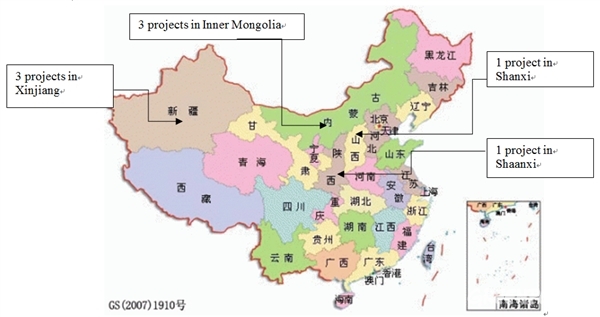With its dusty Loess plateau, vast stretches of desert and bone-dry plains, China’s northwest is a harsh and arid environment. And as desertification makes its force felt and economic development and urbanisation spread, pressure on water supplies are become ever more intense. Yet it is in this area that China’s water-thirsty and polluting coal chemical industry is fast expanding. China’s central government have recognised the environmental risk the industry poses to the environmentally fragile region, and have drafted laws which emphasise that “water is the foremost criterion” and that “stricter environmental standards” must be put in place. A Greenpeace East Asia investigation has found evidence, however, to suggest that in spite of this, a total of eight large scale coal chemical plants in China are currently under construction without permission from the MEP. 
The eight projects represent 15% of a total of 53 currently under construction. Of the eight projects, two have had their permission for construction very clearly denied. On what has become known as ‘Black Thursday’ in the coal chemical industry, the Environmental Impact Assessment reports (EIAs) if the Yili Xintian coal-to-gas project in Xinjiang and Lu’an coal-to-oil project in Shanxi were both denied on the grounds that “ground water and atmosphere has no additional environmental capacity” and that the project locations posed a “major environmental risk.” Despite this clear rejection of the EIAs, both projects have continued construction. Furthermore, in looking at previous records, Greenpeace uncovered that both were proceeding with construction and securing investment before even having submitted the EIA. Yili Xintian is already around 80% complete!
Such disregard for environmental regulations is clearly illegal and poses a major threat to the environment and to local residents whose depend on the parched land for their livelihoods. Unfortunately, it is also an attitude all too common in the coal chemical industry in China.
In researching this issue, we persistently confronted a frustrating lack of transparency on the EIA submission and approval procedure. If the government wants to get tough on enforcing environmental regulations in the coal chemical industry, it must open up this information. Establishing transparency as a norm would ensure better monitoring of the industry and more effective enforcement of the relevant laws.
By Li Yan, Head of Climate and Energy Campaign
